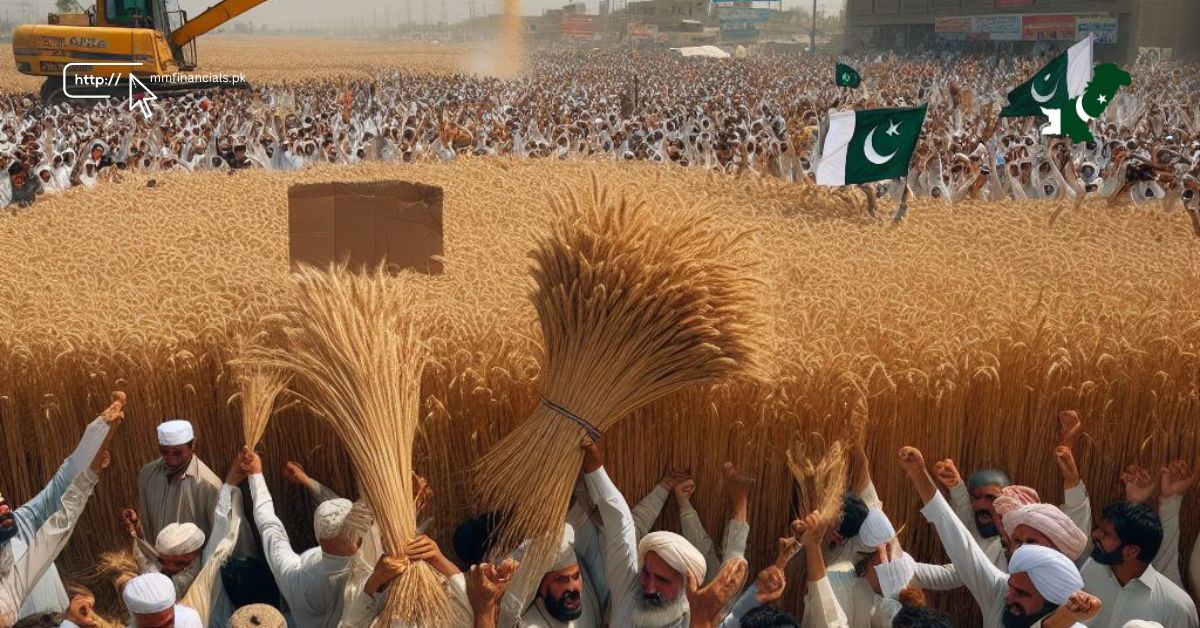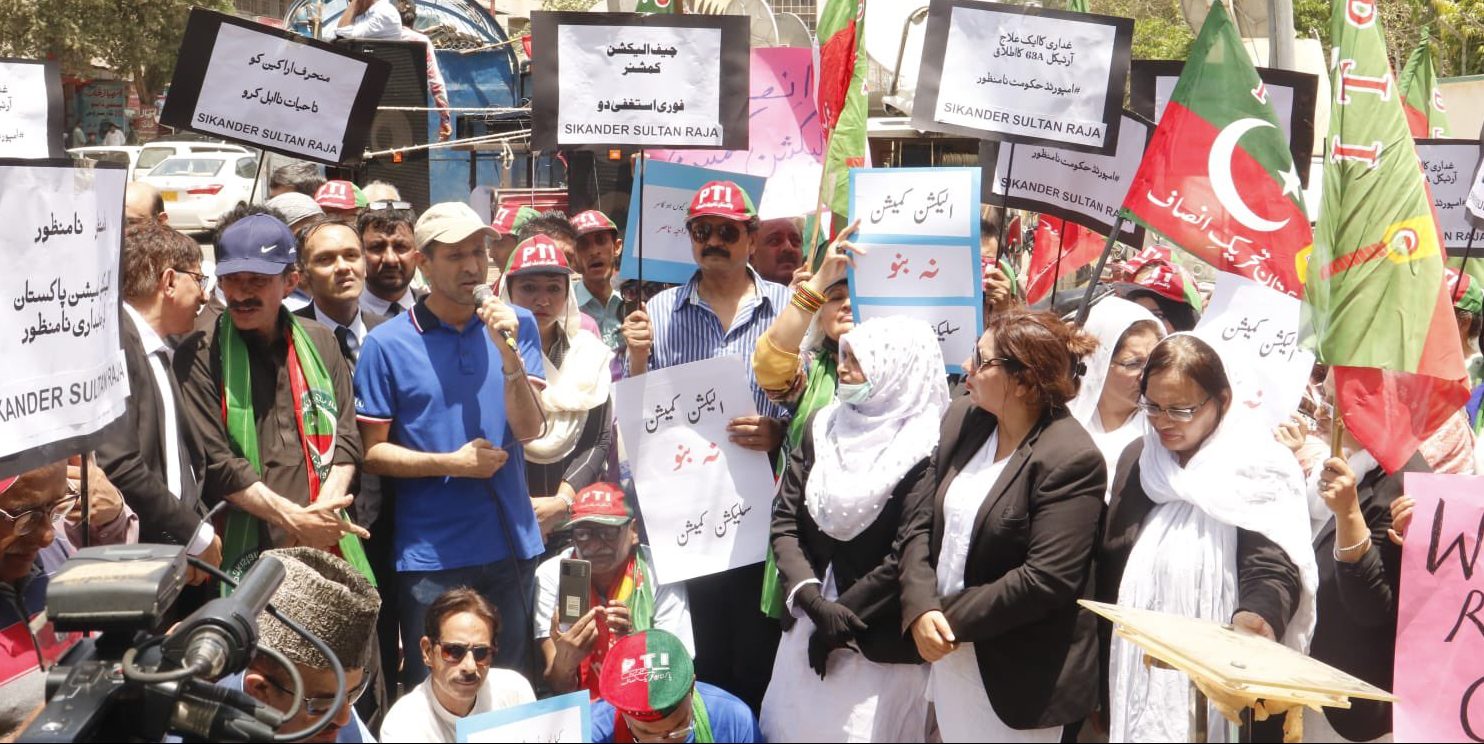The agricultural sector in Pakistan is bracing for nationwide demonstrations as the wheat crisis continues to grip the nation. Kissan Ittehad Pakistan has announced plans for thousands of farmers to participate in protests, commencing from Multan on May 10.
One of the primary concerns driving these demonstrations is the significant drop in wheat rates across the market, well below the government’s established support price of Rs3,900 per 40kg. This decline in prices has been exacerbated by the decision to import wheat, despite reports of a local “bumper crop.”
Last month, the frustration of farmers boiled over into protests in Lahore and various other cities. However, the government’s response has been met with criticism, with accusations of crackdowns on the protests rather than addressing the underlying issues.
Prime Minister Shehbaz Sharif’s administration has faced scrutiny for its handling of the wheat crisis, with calls for a thorough investigation into the decision to import wheat and accountability for those responsible. Despite assurances to support farmers, there appears to be reluctance in taking decisive action to address the situation.
In response to mounting pressure, a cabinet committee has been formed to delve into the circumstances surrounding the wheat imports during the tenure of the previous caretaker government. The outcome of this investigation may shed light on the complexities of the wheat crisis and pave the way for potential solutions to alleviate the challenges faced by farmers across the country.
The farmers’ alliance has reaffirmed its determination to resume protests nationwide, citing the need to address the ongoing wheat crisis, which they argue is detrimental not only to farmers but also to the nation as a whole.
Khalid Khokhar, president of the farmers’ alliance, emphasized the severity of the situation during a press conference, placing blame on the caretaker government for exacerbating the crisis by importing $1 billion worth of wheat, equivalent to approximately Rs277 billion, amid a foreign exchange shortage.
According to Khokhar, this decision has resulted in a staggering loss of over Rs400 billion to the national exchequer. He lamented the profound impact of these losses on farmers, highlighting their struggles as they are forced to sell their wheat at lower rates, while also stressing the financial strain on the government due to interest payments on surplus wheat.
Khokhar did not mince words in condemning what he referred to as the “mafia,” which allegedly profited to the tune of Rs100 billion from the wheat import, exacerbating the plight of farmers and compounding the financial burden on the government.
In an effort to bring attention to these grievances, Khokhar revealed that he has submitted applications to key figures including the prime minister, the chief of army staff, and the director-general of the Special Investment Facilitation Council (SIFC), underscoring the urgency of addressing the issues faced by farmers and the broader ramifications for the nation’s economy.
Khokhar expressed profound concern over the repercussions of the wheat crisis, emphasizing that the losses incurred ultimately impact the nation as a whole, echoing sentiments of despair for both Pakistan and its people.
Highlighting the interconnectedness of agricultural sectors, Khokhar underscored the ripple effects of farmers’ financial struggles, warning of potential setbacks in other crops such as rice and cotton if farmers lack the means to invest.
He lamented the exorbitant costs incurred by farmers, particularly in acquiring urea for wheat cultivation, which he alleged exceeded market prices due to rampant black market activities. Despite low demand, urea prices remain inflated, exacerbating the financial strain on farmers.
Questioning the government’s commitment to safeguarding farmers’ interests, Khokhar criticized the lack of effective regulation, citing the existence of multiple urea price points as evidence of governmental oversight shortcomings.
In response to these grievances, Khokhar announced plans for nationwide protests led by the Kissan Ittehad, commencing in Multan on May 10 and extending across the country thereafter. Despite acknowledging the inconvenience protests may cause, he stressed the urgency of the farmers’ plight, asserting the essential role of agriculture and the imperative to address farmers’ concerns to ensure national prosperity.



















